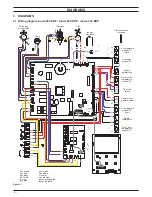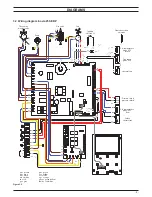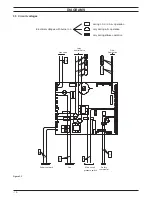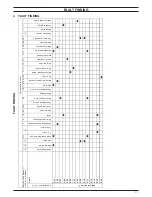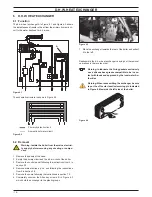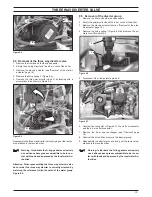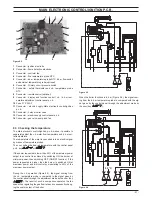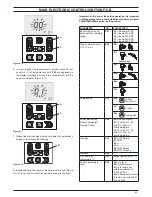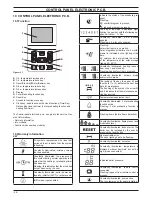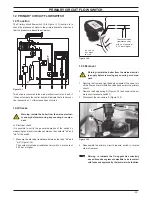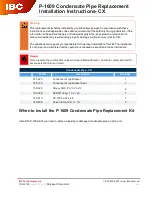
- 21 -
MAIN ElEctroNIc coNtrol/IgNItIoN p.c.b.
figure 9 .2
1 2
3
4
5
6
7
8
9
10
11
12
13
14
1
Connector - ignition electrode.
2
Connector - flame detection electrode
3
Connector - controler fan
4
Connector - flue temperature probe NTC
5
Connector - d.h.w. temperature probe NTC, d.h.w. flow switch
and external temperature probe (optional)
6
Connector - Primary circuit pressure switch
7
Connector - safety thermostat and c.h. temperature probe
NTC
8
Connector - remote control (optional)
9
Connector - display and function control / c.h. / d.h.w. tem
-
perature adjustment control panel p.c.b.
10
Fuse F1, F2 2A F
11
Connector - electric supply Main electronic control/ignition
p.c.b.
12
Connector - 3 way diverter valve
13
Connector - electric supply control panel p.c.b.
14
Connector - gas valve, pump and fan
9 .3 checking the temperature
The
Main electronic control/ignition p.c.b.
makes it possible to
separately adjust the c.h. water flow temperature and d.h.w. out
-
let temperature.
The temperature of the water is converted into an electric signal
by means of temperature probes.
The user, setting the desired temperature with the control panel
p.c.b. key
or
.
If the power requested is lower than 40% of the maximum power
output then control is achieved by switching ON the burner at
minimum power, then switching OFF (ON/OFF function). If the
power requested is higher, then the burner is switched ON at
maximum power and will control by modulating to 40% of the
maximum power output.
During the c.h. operation (Figure 9.3), the signal coming from
the c.h. temperature probe is compared to the signal given by
the control panel through the adjustment made by the user (key
). The result of such a comparison operates the fan
speed thus regulating the gas flow rate and consequently chang
-
ing the useful output of the boiler.
figure 9 .3
When the boiler functions in d.h.w. (Figure 9.4), the signal com-
ing from the d.h.w. temperature probe is compared with the sig-
nal given by the control panel through the adjustment made by
the user (key
).
figure 9 .4
90 °C


